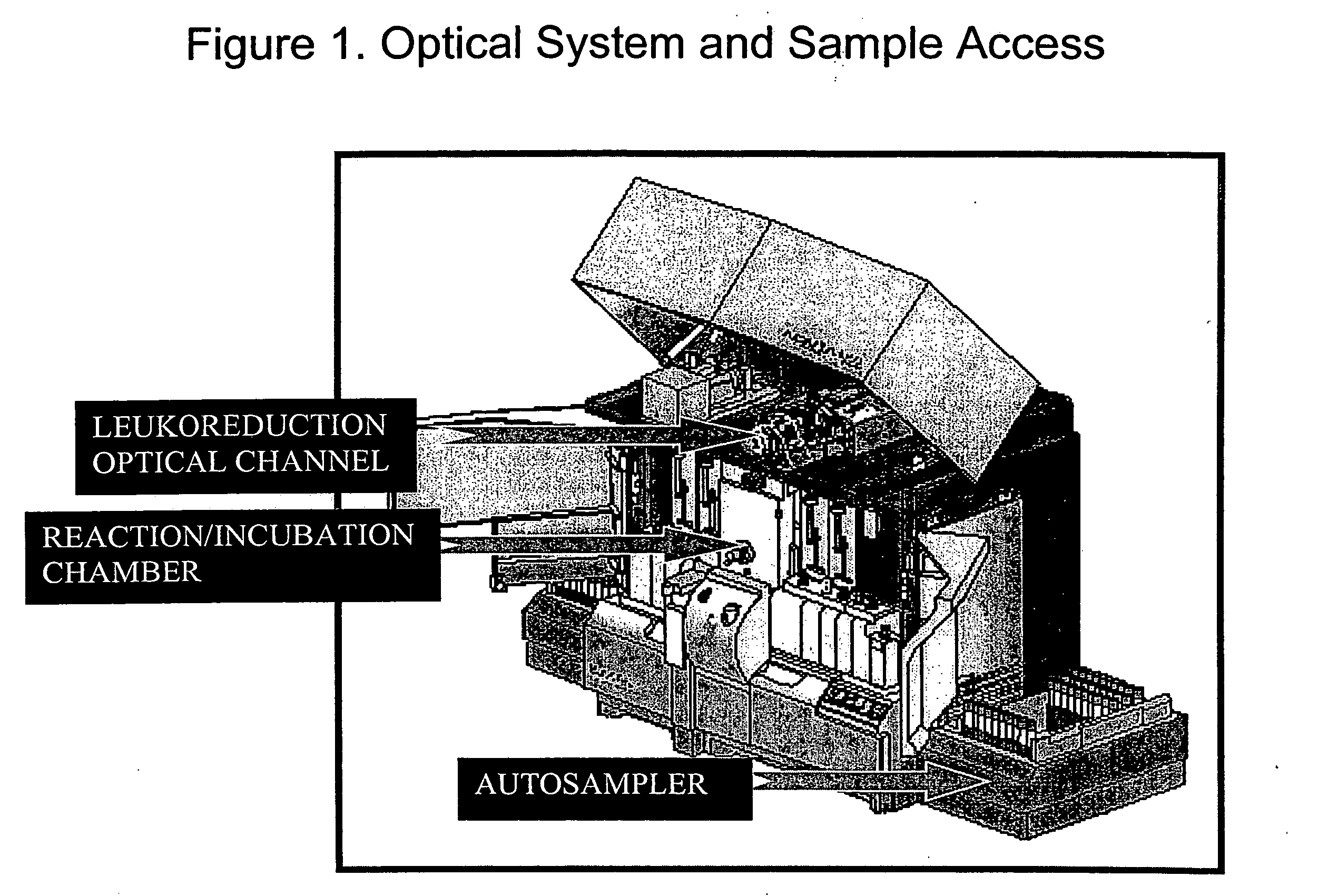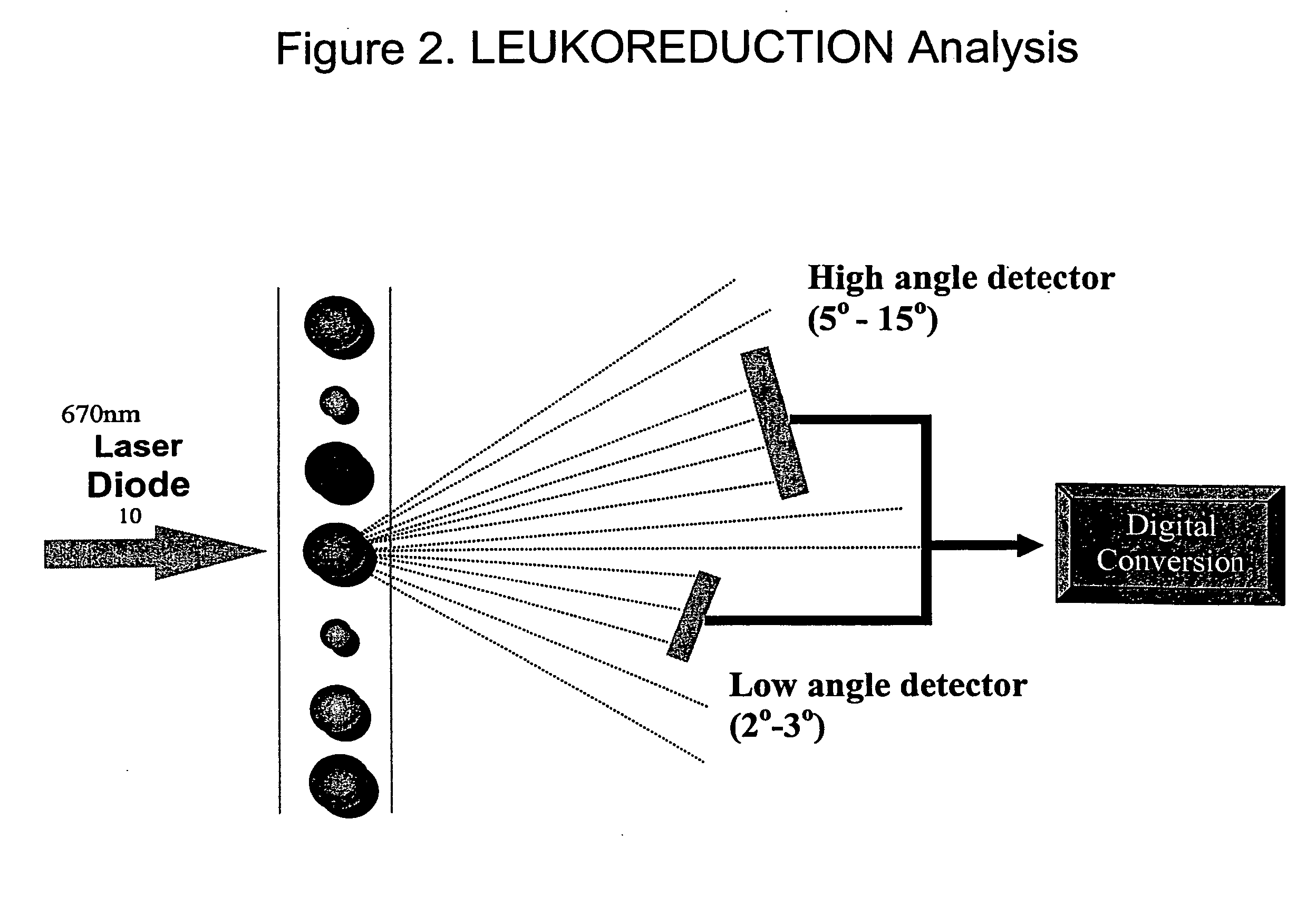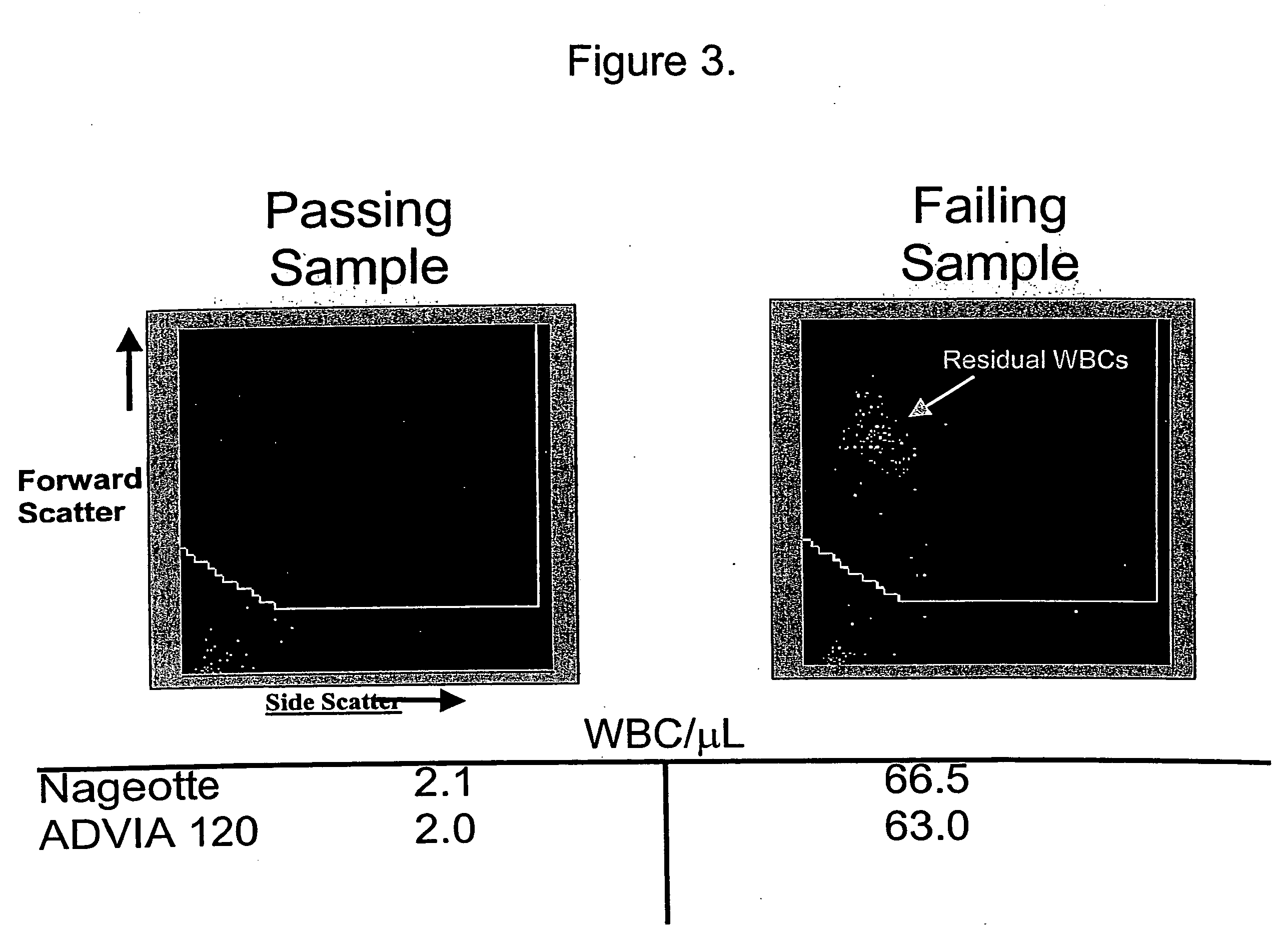Reagent composition for the analysis of residual white blood cells in leuko-reduced blood banking products
a technology of leuko-reduced blood and reagents, which is applied in the direction of material analysis, chemical methods analysis, instruments, etc., can solve the problems of rapid deterioration of white blood cells, disadvantageous use of organic solvents, adversely affecting the strength, flexibility, surface appearance, color and dimension of plastic components of automated clinical analyzers
- Summary
- Abstract
- Description
- Claims
- Application Information
AI Technical Summary
Benefits of technology
Problems solved by technology
Method used
Image
Examples
Embodiment Construction
[0012] One embodiment of this invention is the use of the direct cytometry feature of an automated clinical analyzer, such as the Bayer ADVIA 120 / 2120® Hematology Systems to perform the analysis and enumeration of residual white blood cells in concentrated platelet and packed red blood cell products, and plasma. Direct cytometry as referred to herein, means the direct transfer of an aspirated sample for enumeration and analysis.
[0013] Another embodiment of this invention is the use of a novel lysing reagent composition at low pH. The lysing reagent of the present invention contains a non-ionic surfactant, and a buffer prepared at a low molar concentration, and does not contain a harsh organic solvent leuko-protective agent.
[0014] The lysing reagent selectively lyses or destroys platelets and red blood cells in suspension in the reagent. This facilitates the analysis and enumeration of residual white blood cells with a high degree of accuracy and precision in leuko-reduced blood ba...
PUM
 Login to View More
Login to View More Abstract
Description
Claims
Application Information
 Login to View More
Login to View More - R&D
- Intellectual Property
- Life Sciences
- Materials
- Tech Scout
- Unparalleled Data Quality
- Higher Quality Content
- 60% Fewer Hallucinations
Browse by: Latest US Patents, China's latest patents, Technical Efficacy Thesaurus, Application Domain, Technology Topic, Popular Technical Reports.
© 2025 PatSnap. All rights reserved.Legal|Privacy policy|Modern Slavery Act Transparency Statement|Sitemap|About US| Contact US: help@patsnap.com



